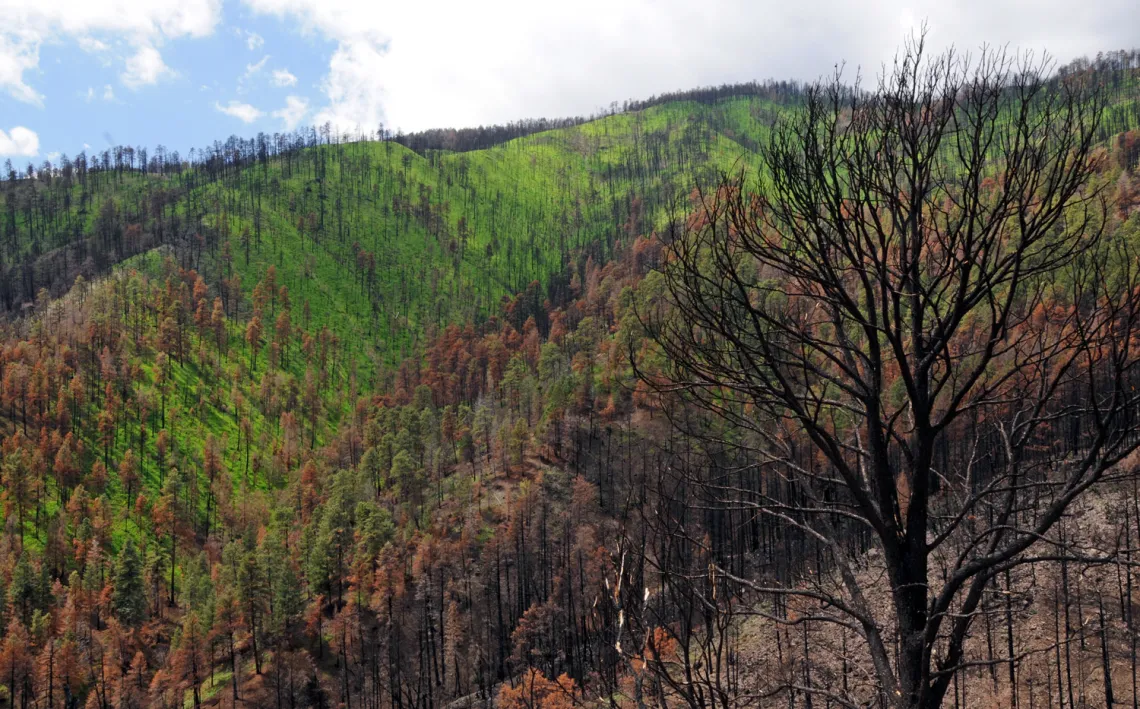Adaptive and Collaborative Approaches Key to Managing Ecosystem Transformation

Heath Haussamen, New Mexico In Depth
Adaptive approaches and close partnerships between researchers and practitioners are needed to address challenges associated with ecosystem transformation as a result of climate change, according to Dr. Stephen Jackson, USGS Director for the Southwest and South Central CASCs, in a new Perspectives piece in Science. Climate change is a primary driver of rapid and gradual ecological change, converting conifer forests to broadleaf shrublands in the southwestern U.S., for example. Natural resource managers can resist the change, accept the change, or intervene and direct the change in a more desirable way (RAD framework). These options require scientific knowledge, and so Dr. Jackson emphasizes the importance of including managers in research concept and design and for deep and sustained engagement between researchers and decision-makers.

